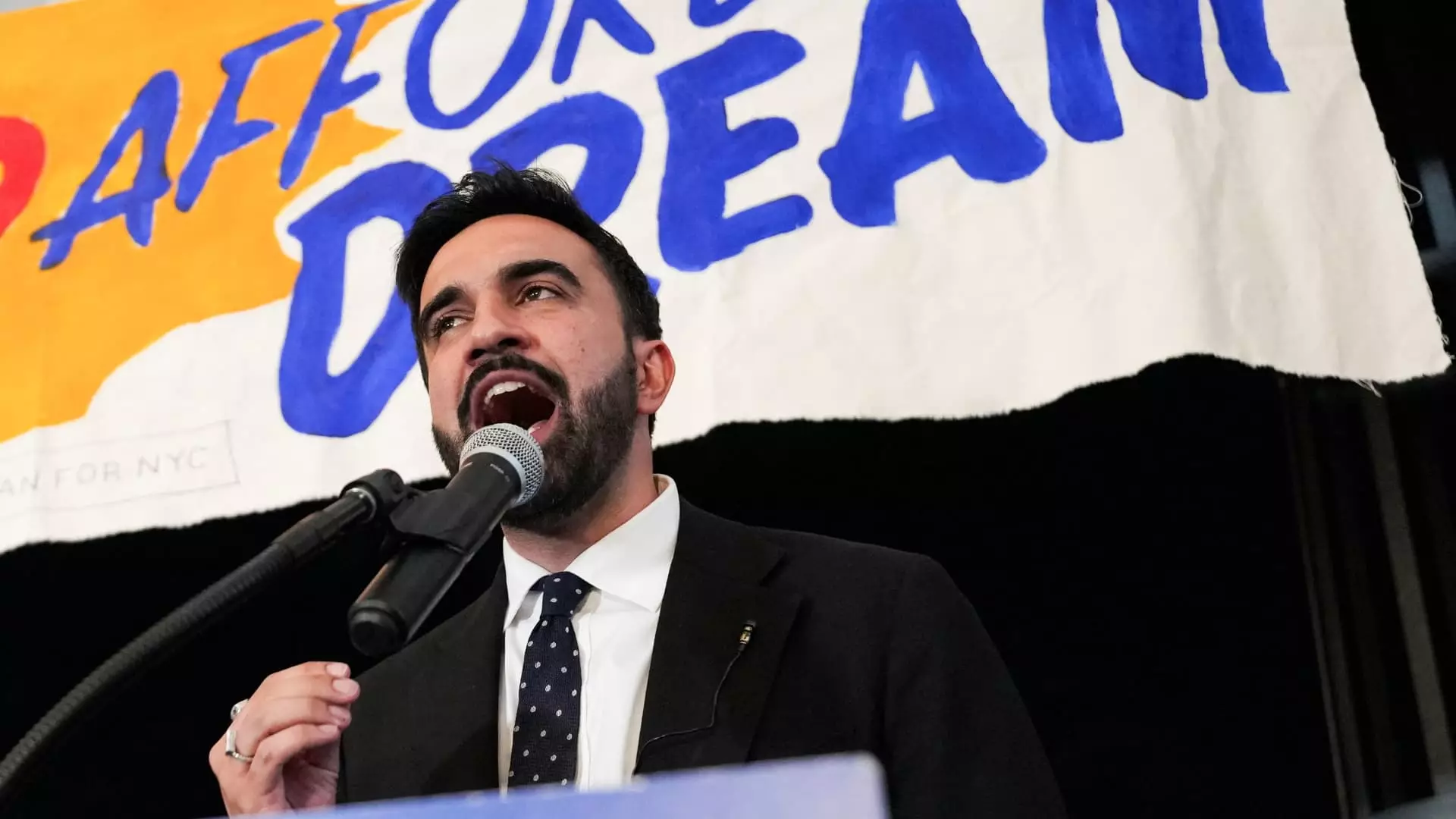Donald Trump’s recent denunciation of Zohran Mamdani, labeling him a “communist” and predicting that New York City will turn into a “communistic city” if Mamdani is elected mayor, is as politically reactionary as it is intellectually lazy. This episode highlights the persistent use of incendiary language to marginalize progressive voices in American politics rather than engaging with their actual policies or potential. Trump’s comments fail to recognize the crucial difference between Mamdani’s democratic socialist platform and the now-antiquated specter of communism that Trump invokes as a scare tactic for conservative audiences.
Mamdani’s first-round victory over Andrew Cuomo in the Democratic primary shocked many, partly because it defied the establishment’s expectations. This upset sent waves throughout the political and economic elite circles, spurring hand-wringing among investors and conservative commentators alike. Yet rather than dissecting Mamdani’s platform in a nuanced way, opponents and media pundits resort to simplistic labels designed to stoke fear and distrust. The unfortunate outcome is a political dialogue reduced to buzzwords and caricatures that obscure more than they reveal.
Beyond Buzzwords: Understanding Mamdani’s Vision
Zohran Mamdani’s policy proposals embody a progressive vision tailored to the unique challenges of New York City. His push for higher taxes on corporations and wealthier individuals, alongside tenant protections like a rent freeze, responds to the stark economic inequalities and housing crisis gripping the city. The promise of free public transportation, while ambitious, touches on broader urban sustainability and equity goals that many cities worldwide are exploring. These ideas are grounded neither in the dogmatic collectivism of Cold War-era communism nor in fantasy—they are pragmatic attempts to reimagine governance in a city weighed down by entrenched inequality and systemic neglect.
Notably, Mamdani’s association with the Democratic Socialists of America often prompts knee-jerk accusations of communism, despite the organization’s clear commitment to democratic processes and rejection of authoritarianism. This conflation undermines serious policy discussions and alienates potential collaborators who might otherwise engage with progressive reform agendas. It is a tactic that hinders the broader left’s capacity to effect meaningful change within America’s political framework.
The Business Backlash and Its Implications
The anxiety voiced by influential figures like Phillip Laffont, warning of wealthy investors fleeing New York if Mamdani becomes mayor, reveals the persistent grip that oligarchic interests maintain over urban governance. The paternalistic attitude implicit in the fear that rich people might leave overlooks the fact that cities thrive when they center the needs of their residents—workers, tenants, and marginalized communities—not just their financial elites. Economic vitality ultimately depends on making cities livable and equitable, not merely preserving favorable conditions for capital accumulation.
This investor panic also mirrors a reactive posture that fails to acknowledge the changing political landscape. As urban populations become more diverse and increasingly demand structural reforms, business elites will need to adapt instead of retreating to nostalgia for a bygone era of minimal regulation and unchecked market power. The insistence on portraying Mamdani as a danger to commerce is less about economic realism and more about protecting entrenched privilege.
Shadows Over Incumbency: The Adams Factor
Complicating New York’s electoral scenario is the precarious position of incumbent Mayor Eric Adams. Once positioned as a centrist Democrat, Adams’ decision to run as an independent, coupled with his indictment on federal corruption charges, has eroded his credibility. The Department of Justice’s unusual move to dismiss the case amid allegations of political quid pro quo involving federal immigration priorities casts a long shadow over the administration.
This legal controversy, intertwined with politicized prosecutorial decisions, exposes how municipal governance in a city as complex as New York is never insulated from broader national power struggles. The fact that seven federal prosecutors resigned in protest over the DOJ’s interference signals deeper institutional concerns about the rule of law and political influence, which voters will undoubtedly factor into their judgment at the polls.
The Stakes of New York’s Mayoral Race
Ultimately, the race for New York City mayor is a microcosm of larger ideological battles roiling across the United States. The visceral fearmongering from figures like Trump reflects an unwillingness among some conservatives to engage seriously with evolving concepts of social democracy and urban reform. Mamdani represents a wave of progressive leadership that, although imperfect and often misunderstood, seeks to challenge structural inequities with bold solutions.
Whether or not Mamdani becomes mayor, the fact that his candidacy has electrified debate and energized voters demonstrates that America’s urban politics are ripe for transformation. Attempts to dismiss or demonize such movements risk deepening polarization and missing opportunities for constructive change. The city’s future depends less on caricatures of ideological extremes and more on honest reckoning with the failures and possibilities of governance in a rapidly changing world.


Leave a Reply